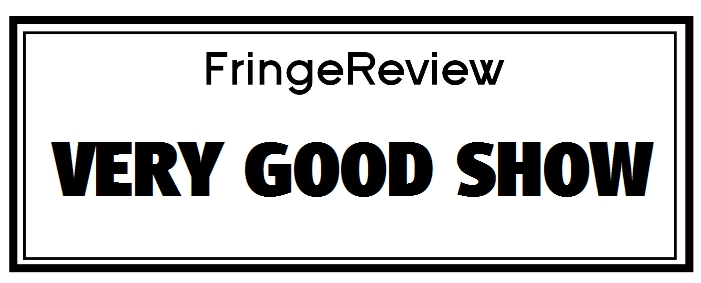Brighton Fringe 2019
Tiptree
Headpictures

Genre: Feminist Theatre, Sci-fi, Theatre
Venue: Sweet Werks
Festival: Brighton Fringe
Low Down
Jenny Rowe’s intimate and compact show unpicks the life of an extraordinary woman who has largely disappeared from contemporary discourse. Her journey is something out of a story book itself and Rowe guides us through the decades, deftly building up a picture of a woman out of step with the path society has spread before her.
Review
“The thing is, I am a 61-year-old woman named Alice Sheldon.” The revelation, written in 1976 to her friend, the acclaimed sci-fi writer Ursula Le Guinn, is a huge shock to Sheldon’s fan-base. For years she has published very well received sci-fi stories under the pseudonym James Tiptree Jnr and the fall-out, especially from male readers and critics, is harsh and immediate. A woman! Writing sci-fi! and middle aged!
We’ve arrived at towards the end of Sheldon’s life, as she reflects back before she goes. She’s travelled to Africa as a child, been an unruly debutante, eloped at 19, join the WAAC’s, become a spy and worked for the CIA before becoming an artist and then, at last, a writer. Misogyny lurks behind all these adventures. Sheldon butts up against prejudice and bias at every turn, being denied jobs and finding it hard to reconcile her sexuality with expected norms. Her first marriage, a pretty debauched affair, has opportunities for experimentation that she heartily grabs, including the drink and the drugs that will cause illness and depression down the line. The phrasing and language of the text is delicious and, whilst theatrical flourish is minimal, there wasn’t a moment when my attention wavered. It’s moving too, as Sheldon has been caring for her sick second husband Ting. They’ve been married for 37 years. Lust though she does for women, her love for Ting is true. “Empathy is how you live” she says “and maybe why you die.” I wonder though, who we, the audience are? The fourth wall has chinks – welcome eye contact and some interaction. The piece is confessional in nature but a reason for us to be present seems lacking.
Rowe is always watchable, and fully inhabitats the character, with a soft American accent and lumbering gait. The play comes properly alive when Tiptree is introduced. At last Sheldon can let her imagination free and write as she feels. “It has been suggested that Tiptree is female, a theory that I find absurd, for there is to me something ineluctably masculine about Tiptree’s writing” said one contemporary critic, and another said the work was “superior in masculinity” to that of Hemingway. This is tantalising stuff, and whilst we get a fragment of some themes in the books, for me it’s not enough. I wanted to hear the prose and know the plot of, for example ‘Beam Us Home’ or ‘The Peacefulness of Vivyan.’ We’re told death and technology are key themes but not about how the stories came to be. Did her early drug taking and expertise in visual perception influence her at all? Does having an alter-ego affect her day to day existence? Perhaps there is a part two in which this intelligent, feminist writer’s imaginative life is shown in technicolour.
For now, Tiptree is a fascinating biography well worth knowing, convincingly acted and eloquently written, raising questions about gender, fulfilment, subterfuge and love.


















































